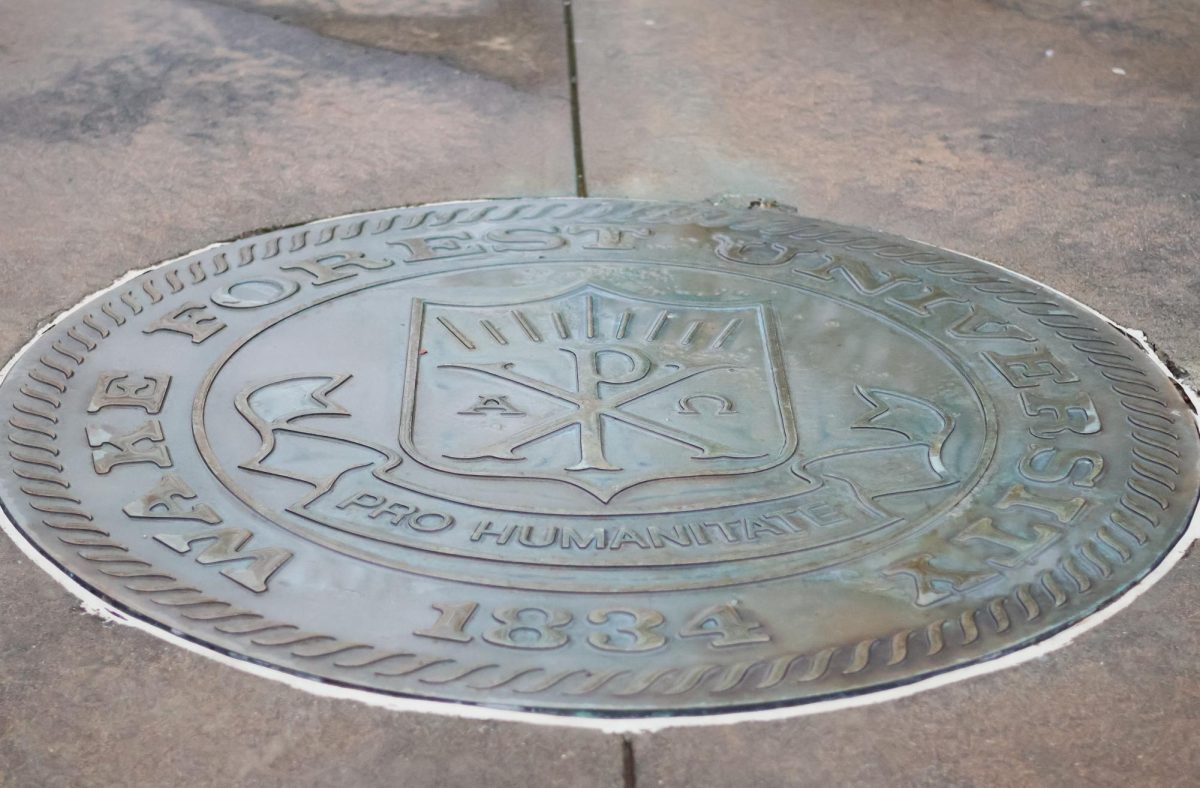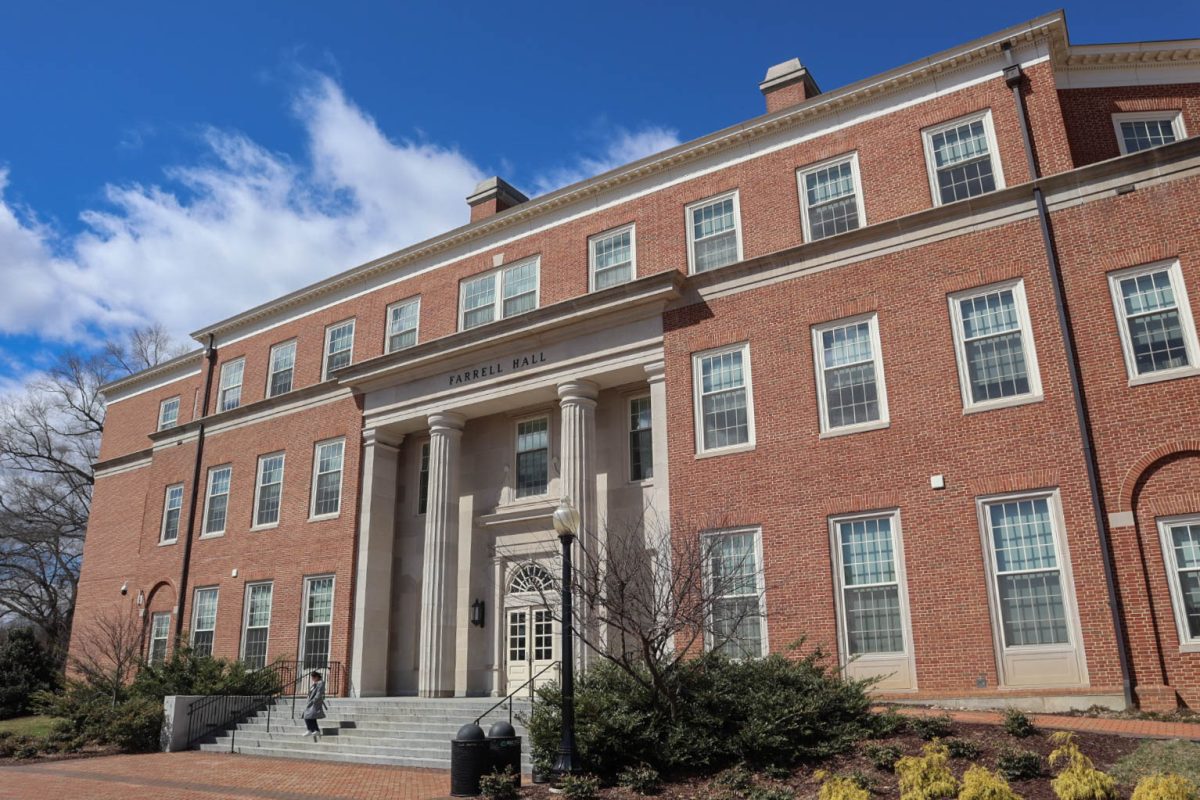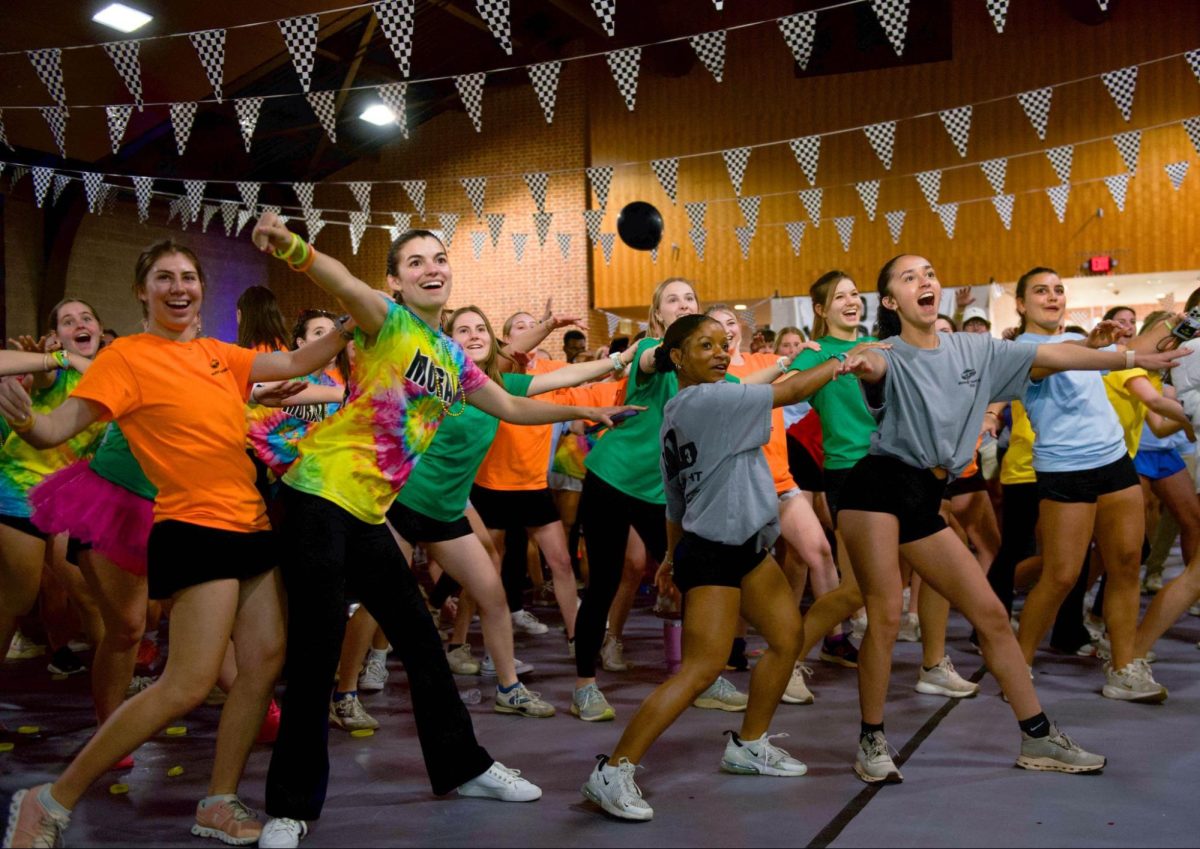Wake Forest preaches pro-humanitate as its core value, defining it as “a calling to use our knowledge, talents and compassion to better the lives of others.” They use four annual events, among others, as their primary advertisement of this value: Hit the Bricks, Project Pumpkin, Wake n’ Shake and D.E.S.K. All of these events are student-led and work to raise money for various philanthropic organizations, including the Brian Piccolo Cancer Research Fund and the Wake Forest University Children’s Defense Fund Freedom School.
As a first-year student at Wake Forest, it can be hard to find the pro-humanitate spirit while trying to navigate the new social and academic pressures of a college environment. Personally speaking, I found participating in the annual volunteering opportunities organized by Wake Forest to be my first exposure to true school spirit that wasn’t incited by a sports game.
However, after the first semester of freshman year, it became evident that participation in these events by many students is mandatory by their Greek Life organizations, which continually top the leaderboard for fundraising but not laps run.
This raises the question: just how committed is the school and its students to pro-humanitate? Does Wake Forest actively pursue its dear motto?
There’s no question that kicking off the first semester of college with participation in Hit the Bricks and Project Pumpkin is a valuable way to find a greater sense of community and school spirit as a new student.
Freshmen can take the first step by forming teams through their dorms or pre-orientation programs, meeting new people and banding together for a good cause. For example, at Hit the Bricks, the team representing the first-year dorm Luter raised over $5000, coming in at No. 9 for total fundraising by a team. The top freshmen team for laps, Wake Wilderness #1, ran 264 laps, rivaling some of the Greek Life and Grad School teams.
Notably, these initiatives are highly publicized on the social media accounts of Wake Forest itself, which has over 60,000 followers, as well as the account for Campus Life, which has over 1,900 followers.
A freshman, Arden Beck, noted that Hit the Bricks and Project Pumpkin really caught her attention because of Instagram: “Seeing the pictures from Project Pumpkin on [Wake Forest’s] instagram [make me want to participate] because they give you those ‘aww’ moments.”
Is the publicity that these events garner the true point of their occurrence? I wouldn’t go so far as to say this. Even though these events are used as keynote selling points on the website and across social media, it would be worse not to share the good work that students are doing — although it does feel like it’s for a few select days a year.
It is also a unique experience to see professors and staff you might know partaking, too, enjoying events like Project Pumpkin with their children, for example. Another first-year Kenley McClure appreciated “how close-knit the school community is and how they try to involve the Winston community.”
Close connections between students and professors is something that Wake Forest preaches enthusiastically, clearly exacerbated by events outside of the classroom like Project Pumpkin.
However, once students progress into involvement in Greek Life and other organizations past their first semester, they may realize that pro-humanitate is not all that it’s made out to be.
Is it necessarily a bad thing that the Greek organizations that continue to raise the most money for these events have mandatory participation? That is a question I’m not sure can be answered by myself alone.
Students in Greek Life may not be the primary participants in the volunteer initiatives found elsewhere on campus, such as Campus Kitchen, which has had 13,000 student volunteers participate since 2006. Perhaps the main problem is that the pro-humanitate experienced the rest of the year is simply not talked about enough on campus or publicized on social media.
Regardless of this contention over the publicity of pro-humanitate, it is clear that first years engage in these events because they see upperclassmen participating. They take note of how students prioritize participation in these events and how the school shares its resources — the students “going a little bit of the extra mile or adding something in their schedules so that people can have a great experience,” McClure said.
With all of this said, Wake Forest and its students need to work to embody pro-humanitate more in the day-to-day rather than only showing up when it’s mandatory, regardless of the attention it garners from first-years and online. A school’s motto should be something that students and administration live by, not something they pull out to showcase.












